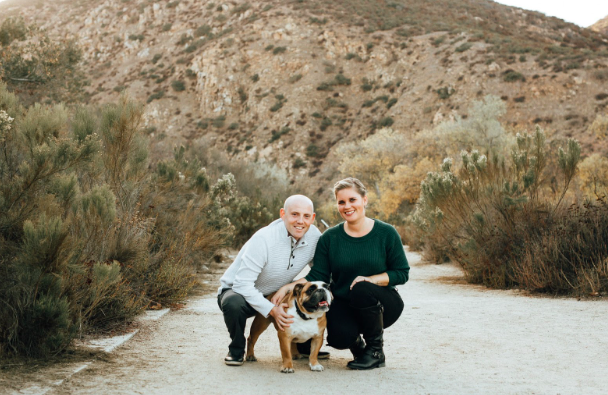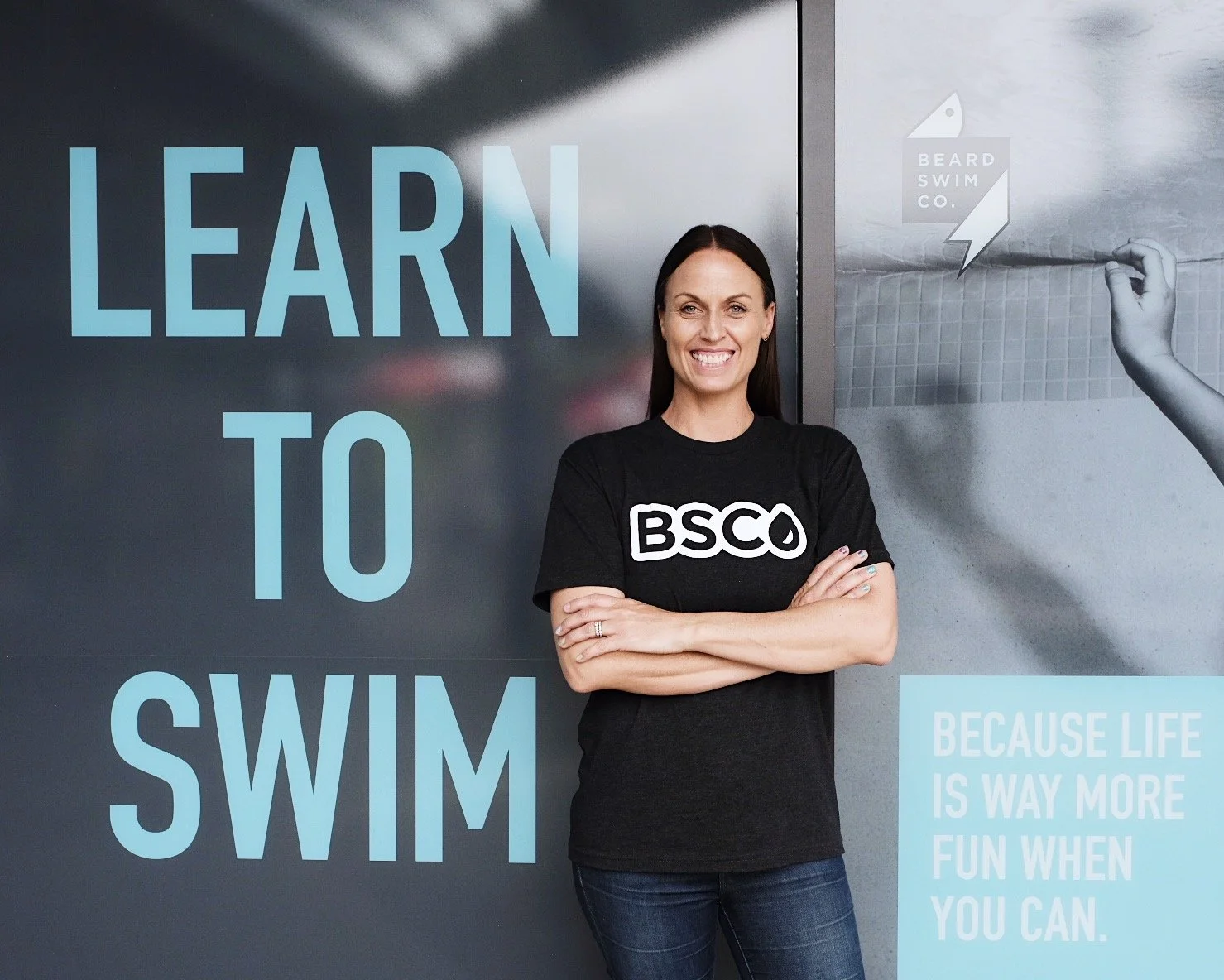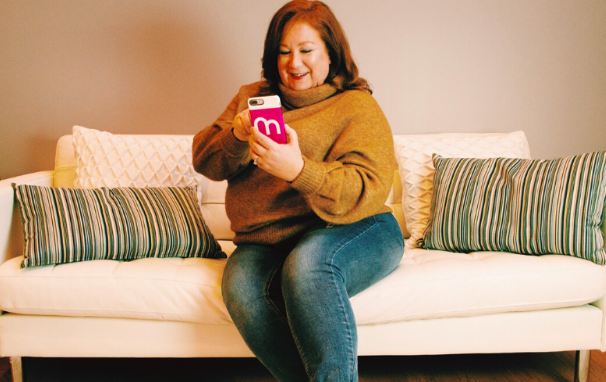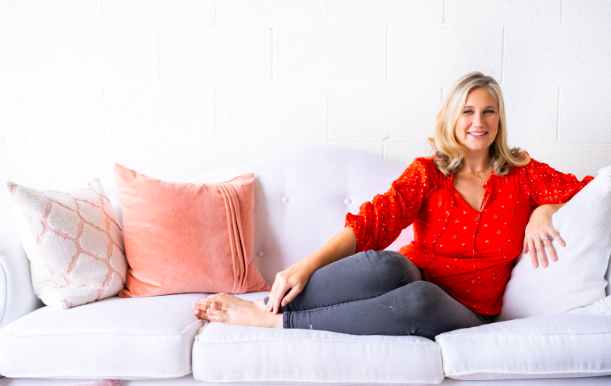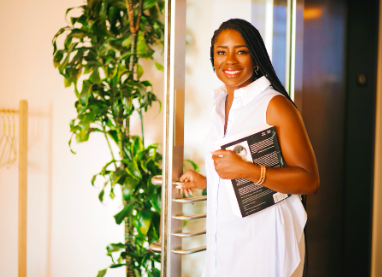"Listen to your peers for advice, but then create something that works for you" Johanna Kitzman
/Photo Credit: Joelle Julian
Johanna is the owner and founder of Studio Freyja, a luxury photography studio located in San Diego that focuses on maternity, newborn, and family portraits. With a minimalistic, timeless, and personalized approach, Johanna has captured countless important family memories in the 8 years she’s been in business. While she started her business in Minnesota, she moved herself and Studio Freyja to San Diego in 2016 and started from scratch again. Since then she’s been able to build up her business again to a profitable company that has seen growth year after year.
Can you tell our readers about your background?
I was born and raised in Sweden and moved to Minnesota to attend college in 2007. That’s where I met my husband and since then I’ve lived in the states. Being so far away from family really made me treasure the few family albums I had brought with me from home. Leafing through them brought back memories of family time, even as far back as when I was a little toddler and spent time with my grandparents.
What inspired you to start your business?
Unfortunately, I, just like many people, didn’t realize how much work goes into professional photography. So when my husband and I got married in 2012 we thought $1000 for a wedding photographer was a TON of money (spoiler alert, it’s not!). Needless to say, our photographer ended up not being very professional, and instead of being able to relive our wedding day through our wedding album, I spent a year having to fight to even get any pictures from our day as our photographer just completely disappeared.
The few photographs we finally received were not ones I’m thrilled to share. So many important moments were missed and lost. I decided that no one else should ever have to go through that same experience. So I picked up a camera and taught myself everything I needed to know, and slowly but surely I built up my experience and my business where I could ensure families had their most important moments captured and documented. Since then I’m also a huge advocate for encouraging other photographers to charge a profitable rate. What we do is important, and we deserve to be compensated accurately for it.
Where is your business based?
I am based in San Diego with a studio located in La Mesa. However, I travel back to Minnesota for shoots as well as go to other places. I love to travel and love when the opportunity to combine my passions for photography and travel coincides.
How did you start your business? What were the first steps you took?
When I first started photography I spent a lot of time watching YouTube videos on posing and editing. I taught myself the ins and outs of my camera and studied the law of light. I then practiced under another photographer who specializes in Newborns to learn the proper posing techniques so that I knew what I was doing was safe for the babies. I also spent several years second shooting for other photographers before I took on my first weddings. As photographers, it is our responsibility to ensure that we can provide what our clients need. Everyone has a phone nowadays with great cameras on it. So we have to ensure that what we do is more than just taking snapshots. These have to be portraits that last for generations, that they are proud to display around their homes, and we have to be able to show up at any occasion and know that regardless of environment, light, or location we can produce quality portraits for our families will cherish.
What has been the most effective way of raising awareness for your business?
Great customer service and SEO. The majority of my clients are repeat clients, clients who were referred by past clients, and people who found me on Google. But nothing beats a repeat client and a referred client. These are warm leads that have either already fallen in love with you or they heard such great things about you from their friend that they’re ready to book you before you’ve even spoken to them. Nothing beats word-of-mouth marketing.
What have been your biggest challenges and how did you overcome them?
The hardest part about running a photography business is that there is a photographer every which way you turn. It is very easy to get stuck comparing yourself to everyone around you, and not just losing confidence in yourself, but also losing your creativity and integrity with it. It’s never easy to stand out from a crowd, but when you’re running a business that’s already not looked upon as a professional job, it’s so important to find your own lane. When I started photography I thought I had to do exactly what everyone else was doing. More props. Brighter colors. Crazy edits! But as I went down that rabbit hole I lost myself, I lost my sense of purpose for why I was doing this, to begin with, and I lost my identity in my art.
To me, photography is very personal. Not only to those families who we photograph, but to us as the photographer as well. This is my art and my personality. When I realized this I went back to the basics. I looked at what truly spoke to me, and it was natural light and color, minimalistic setups, and portraits that focused solely on the subject(s) I was photographing. Whenever I feel like I’m sliding down the slippery slope of comparing myself to others, I write down my reasons for why I shoot the way I do. And it helps me find my focus again and keep going down my own lane.
How do you balance work and life?
This is tough. Because as a small business owner you’re constantly working. There’s not a moment that goes by when I’m not working. And it’s especially hard when so much can be done from my phone; answering inquiries, answering phone calls, posting on social media, etc. But the whole essence behind my business is quality family time and memories. So I make sure that I live by that rule too. While I constantly have my phone with me (more than I should probably) I do try to make sure that I’m only in front of my computer editing, doing website updates, market research, etc. from 9-5 Monday to Friday.
I try to limit shooting on the weekends to just one day, Saturday or Sunday. And if I do end up working a full weekend day, I give myself a day off during the week to just relax. I can’t run a successful business on an empty cup. Unless I give myself the grace I won’t be able to provide my clients with the service they’ve come to expect.
At first, when I set these boundaries I was worried that I would lose out on shoots because I wasn’t offering all weekend days. But turns out, people will book you anyways because of the value you’ve conveyed. So if they want to have me photograph their newborn pictures, maternity photos, etc. then they make time in their calendars to fit in a weekday evening shoot.
How do you differentiate your business from the competition?
I’m all about community over competition and actually run a Mastermind Group with other photographers from my area. There are enough people out there who want pictures that we’ll all have enough to work with. To me, it’s important that we set a consistent standard for photography where people get used to paying profitable prices for their portraits. So we are very transparent with each other and what we offer etc. The way we differentiate ourselves from each other then comes down to slight differences in our style, and then our personalities. Our clients hire us as much from our images as our personalities.
What's your best piece of advice for aspiring and new entrepreneurs?
Listen to your peers for advice, but then create something that works for you. Don’t copy someone else’s strategies, systems, and branding because it won’t work for you. Surround yourself with people who are working towards the same goals as you are; let them support you when you need it, and be the support they need. And lastly, charge what you’re worth! Make sure to really understand what you need to make a profit. Don’t just focus on the direct expenses, but calculate in fees, taxes, retirement, and your personal finances. Not only do you have to make money to cover the expenses of the business, but you need to be able to pay yourself a salary that will cover your personal expenses and give you room to add to savings and retirement.
How do you stay focused?
I have a CRM system I use to keep track of each client and wherein the planning process they are. I also have an accountability partner that I meet with every two weeks where we set up our goals and go over accomplishments. And I give myself time to not be focused. We can’t be focused 24/7 - nobody is. And we have to recognize that we can’t be 100% every day. So if I have days when I feel like my focus isn’t where it needs to be, I give myself grace and allow myself to step away from the computer, run errands, read a book, etc. Because I know I’d rather do something for myself, than waste time doing half-hearted work “just because you’re supposed to”. This way when I come back to work I’ve been inspired again and can focus the way I need to.
What’s your favorite way to decompress?
Travel, Hiking, Ocean, and Dog Cuddles. I love going for hikes around San Diego or heading out to hear and smell the ocean. It gives me peace of mind and renewed energy. I always feel refreshed and inspired when I come back. I also love traveling and my husband and I try to plan one big trip once a year to get away and explore new areas of the world. But mostly, cuddling with my English Bulldog is my go-to activity when I’m feeling stressed or overwhelmed.
How can our readers connect with you?
You can follow along on my business journey and see all the pretty pictures on my Instagram, Facebook and Website. I’m an open book and love helping and inspiring other women to go after their dreams. I always say, I may not have the answer, but together we can toss ideas around and sometimes when you have an issue, just talking it through with some can spark ideas for solutions!

